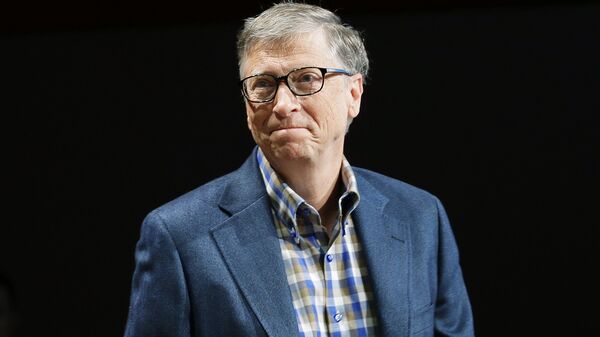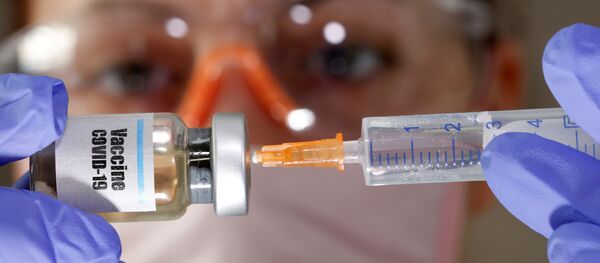Bill Gates doesn’t expect the US to receive a government-approved coronavirus vaccine until at least the end of October, but said there’s a “tiny, tiny chance” that Pfizer and Moderna could collect enough data to apply for Federal Drug Administration approval before then.
“Of the six trials –AstraZeneca, Johnson & Johnson, Novavax and Sanofi, plus the two RNA vaccines, Pfizer and Moderna – I certainly expect three or four to get emergency use licenses by early 2021. As we get into 2021, I believe it’s 90 percent likely that we will have some vaccines,” Gates said, speaking to Spiegel magazine.
Asked to comment on the recent halt in the human trials of AstraZeneca’s vaccine after a trial participant suffered spinal cord damage, Gates said it was “not very surprising” to him, suggesting that the case “underscores the fact that having taken many different approaches is quite valuable.”
“It is true that a vaccine candidate can trigger an underlying autoimmune condition that would have shown up at some point. We’re looking at that connection and regulators deal with this all the time,” he emphasized.
The Gates Foundation has donated at least $350 million toward coronavirus research, including large grants to Astrazeneca, Johnson & Johnson, Novavax, Sanofi, Moderna, CureVac, BioNTech and Inovio for their vaccines, which range from traditional adenovirus vector vaccines to RNA and DNA-based ones.
Gates got testy with his interviewer after being asked whether DNA and RNA vaccines are more risky and ‘experimental’ than traditional adenovirus vector vaccines, which have proven successful against other diseases like measles and tetanus for many decades.
“What do you consider experimental? We’re looking at every possible way. There is no way that any vaccine that has ever been made isn’t being used to go after coronavirus. There are challenges with every one of the approaches. Making a new vaccine is a hard thing. There is no conventional approach. So just throw out the word conventional. There’s nothing conventional going on here. Everything we’re doing is unconventional,” he stressed.
Gates added that he would ‘get in line’ for a vaccine once it becomes available, but promised not to “cut in line in any sense” or “privilege [his] access to the vaccine when it’s in short supply.” Instead, he said, health care workers, nursing care workers, prison workers and those who live in multigenerational households should get the vaccine first.
“I hope governments are able to convince enough citizens to take the vaccine without using coercive measures, because that leads to this huge backlash against the vaccine,” Gates added.
Bill Gates’ enthusiasm for creating enough vaccines to vaccinate the entire planet from coronavirus has led to the spread of conspiracy theories that such vaccination campaigns are part of some nefarious plot aimed at population control, or even implanting microscopic microchips in people’s bloodstream. Gates has repeatedly dismissed the claims, and stressed again in his Spiegel interview that he “did not create the coronavirus” and has no plans for “microchipping people.”




